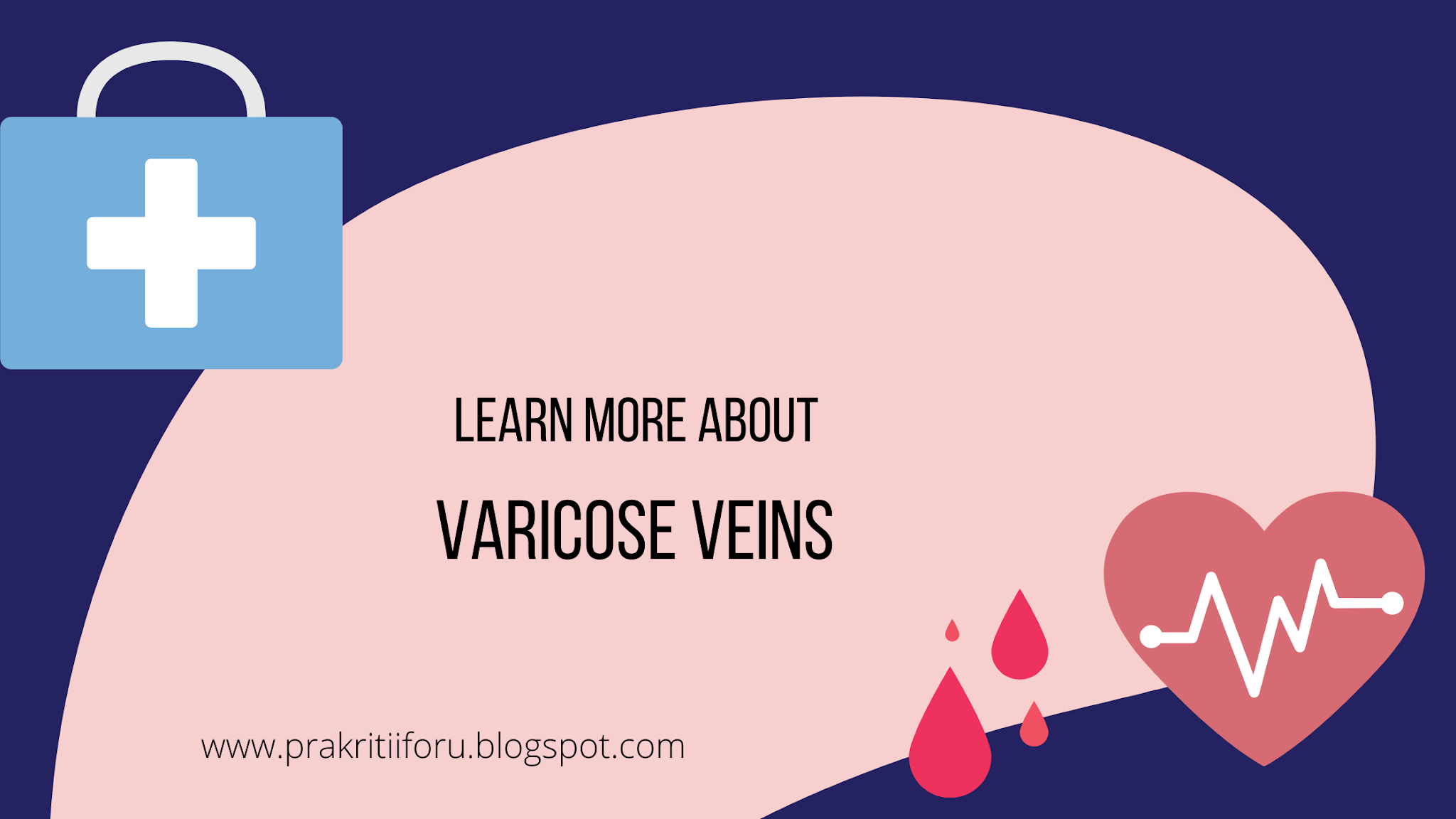Review On Varicose Veins
People nowadays irrespective of their age suffer from pain in their legs which aggregates after prolonged standing. This is usually due to the disease named Varicose Veins in which a person suffers from severe pain especially in lower limbs with other associated symptoms.
Varicose Veins
A varicose vein is thin-walled, dilated, and elongated superficial veins with reversal of blood flow due to the incompetence of valves. It affects mainly the individuals in which there is a need for prolonged standing, professions such as policemen, nurses, teachers, conductors, etc as due to prolonged standing valves of veins are weakened and give rise to varicosity of veins.
Varicosities are more common in lower limbs because of erect posture long column of blood has to be supported which can lead to weakness and incompetence of valves that lead to varicosities.
Other than these professionals, there are some other risk factors such as-
Obesity- Due to poor support of fatty tissues in subcutaneous veins there is the incompetence of valves which leads to poor blood circulation.
Old age- In Old age due to weakness in valves it causes incompetence of valves.
Multiparous women- In Multiparous women, a hormone named progesterone causes dilation and relaxation of veins which leads to varicosity.
Symptoms Of Varicose Veins -
- The person will be suffering from constant pain in his/her leg which aggregates usually after prolonged standing.
- Pain aggravates during the night time.
- Dilated veins will be visible on the legs.
- Dilated Veins are enlarged, swelled, and bluish in color.
- The person suffers from stiffness in legs.
- Pigmented skin in the leg.
- Swelling and itching are also present on the affected leg.
Complications of Varicose Veins-
- Venous Ulcer
- Deep Vein Thrombosis
- Superficial Thrombophlebitis.
Investigations-
- Venous doppler to rule out the DVT and to find out the perforator incompetence.
- Duplex scan - It is a highly reliable Ultrasound doppler imaging technique and DVT is very well-identified by this method.
Ayurveda Approach for treating Varicose Veins-
The main approach in treating the Varicose veins is Raktashodhan (purification of blood) therefore therapies like Siravedhan and Jalukavacharan are used. Both Classical literature of Ayurveda and Researches show Siravedhan and Jalukavachan give a good result in treating the Varicose vein.
- Kanchnar
- Amla
- Neem
- Ashwagandha
- Arjuna
- Guggulu
- Nagakesar
- Shatavari
Things to remember in Varicose veins-
- Elevation of limbs is important as it relieves the swelling. While sleeping put two pillows below the legs to improve the circulation.
- Elastic crepe bandage application is advised.
- Exercise- Regular exercise is important in the Varicose veins to improve blood circulation.


.png)

يمكن تشغيل تسخين المياه بالطاقة الشمسية باستخدام مصادر طاقة متعددة، مثل الغاز الطبيعي، الديزل، الكهرباء، أو الطاقة الشمسية، مما يتيح للمستخدم اختيار الأنسب من حيث التوفر والتكلفة. ويعتبر نظام التدفئة المركزية ميزة إضافية تزيد من قيمة العقار، حيث يوفر وسيلة تدفئة فعالة وحديثة ترفع من جودة الحياة في المبنى.
ReplyDeleteكيفية اختيار سخانات مياه شمسية مركزية مناسب
ReplyDeleteالتكلفة: تعتبر مضخات الحرارة خيارًا متوسط التكلفة من حيث الاستهلاك، بينما تعد السخانات الكهربائية الأغلى من حيث تكلفة التشغيل.
التأثير البيئي: إذا كان الحفاظ على البيئة أمرًا مهمًا بالنسبة لك، فإن السخانات الشمسية والأغطية الحرارية تكون أكثر صداقة للبيئة.
تعتبر مصانع مواسير الصرف الصحي من العناصر الأساسية في قطاع البنية التحتية، حيث تنتج مجموعة متنوعة من المواسير المصممة لنقل المياه العادمة والمخلفات بكفاءة وأمان. تعتمد هذه المصانع على تقنيات متقدمة ومواد ذات جودة عالية لضمان متانة المواسير وقدرتها على تحمل الضغوط والتآكل الكيميائي.
ReplyDeleteشركات مواسير بلاستيك بولى بروبلين فى مصر
ReplyDeleteتُعد دعامة رئيسية لتطوير البنية التحتية ودعم مسار التنمية المستدامة. من خلال التزامها بالابتكار ومعايير الجودة العالمية، أصبحت خيارًا موثوقًا للعديد من المشاريع في مختلف القطاعات، مما يساهم بشكل فعّال في تحسين جودة الحياة وتعزيز النمو الاقتصادي في مصر.
ReplyDeleteصيانة كريازي
صيانة ال جي
صيانة توشيبا